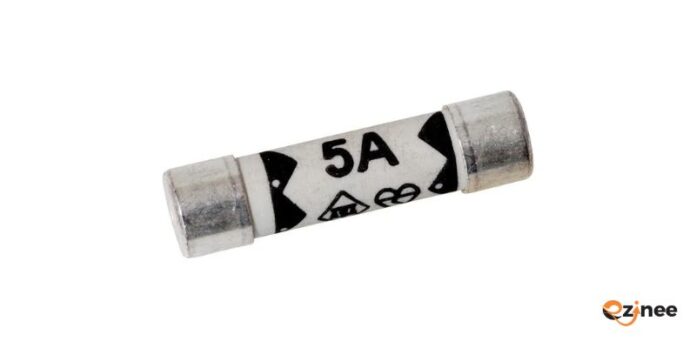Fuses are one of the most important components in electrical systems; they prevent circuit overloads and protect devices from inevitable damage. The 5-amp fuse is particularly important among the different types. Knowing its function and use can both increase safety and productivity in the office and other places. The extra content discusses common applications for a 5-amp fuse and the context in which these fuses typically operate.
Understanding Fuses
A fuse is an electrical safety device that protects an electrical circuit from overload. This operation is to cut off the supply of electricity when there is a surge in current flowing above a certain limit. When the fuse element melts, the circuit is broken, which prevents fire and damage to the equipment.
For instance, a 5-amp fuse is rated to carry currents of up to five amperes. They provide a compromise between sensitivity and capacitance, which makes them appropriate for several sorts of applications.
5-Amp Fuse Usages
Household Electronics
5 Amp fuses are commonly used to protect household appliances. These fuses are commonly found in appliances, radios, radios, microwaves, and other small kitchen appliances to prevent excessive current flow when an appliance fails or experiences an electrical spike. In such scenarios, the fuse protects sensitive components by isolating them from sudden spikes in voltage or current.
Lighting Systems
One example of an electrical item using 5-amp fuses is a lighting system. These fuses are particularly useful for protecting lamps, chandeliers, and other light fixtures, especially in residential applications. The in-home fuse limits the electric flow inside the fuse, preventing the fuse from becoming too hot so it can catch fire and cause an electric fire in a home.
Automotive Uses
In automotive,5-amp fuses are used in vehicle electrical systems. They provide protection for dashboard instruments, interior lighting, and some control units. Keeping these systems within safe current limits increases the reliability and safety of the vehicle.
Industrial Equipment
Small industrial equipment also uses 5-amp fuses. These fuses ensure the smooth functioning of machines consuming low current like sensors, control panels, etc. Incorporating them within industrial setups allows businesses to mitigate the risk of expensive downtime and equipment failures.
Benefits of Using 5-Amp Fuses
Enhanced Safety
The number one benefit of using 5-amp fuses is safety. These fuses minimise the risk of electrical fires and equipment damage by preventing current overloads. It helps to save both property and lives.
Cost-Effective Solution
5-amp fuses are cost-effective for electrical system protection. They are a smart option for a wide variety of applications since they cost relatively little and provide a good deal of protection. It’s much cheaper to replace a fuse than it is to fix broken equipment that needs to be replaced.
Easy Maintenance
Examples of mini-fuses (5-amp) are low-maintenance types of fuses too. In case of a blown fuse, fuses are easy to replace. Simplifying maintenance minimises system downtime, enabling those systems to stay functional longer.
Selecting the Right Fuse
Selecting the right fuse requires considering the specific needs of the electrical system. The selection of an isolation transformer must be guided by the current rating, voltage rating, and application. Using a correctly rated fuse will prevent damage whilst offering the best performance.
It can be helpful in choosing an appropriate fuse to consult an electrician for the equipment’s manual. Choosing fuses wisely means less risk and a better system lifetime.
Conclusion
The use of a 5-amp fuse as a vital part of different electrical systems. It is also a very important device for devices in the house, for lighting, automotive systems—virtually any applications where protection mechanisms against current overloads are required. 5-amp fuses ensure that the equipment runs without a doubt as well as offer nominally affordable and easy maintenance to replace the fuses.
By knowing their uses and the advantages they offer, individuals and businesses can make educated choices. Electrical systems are good only if the right fuse is there because the right fuse minimises risk while maximising performance.



